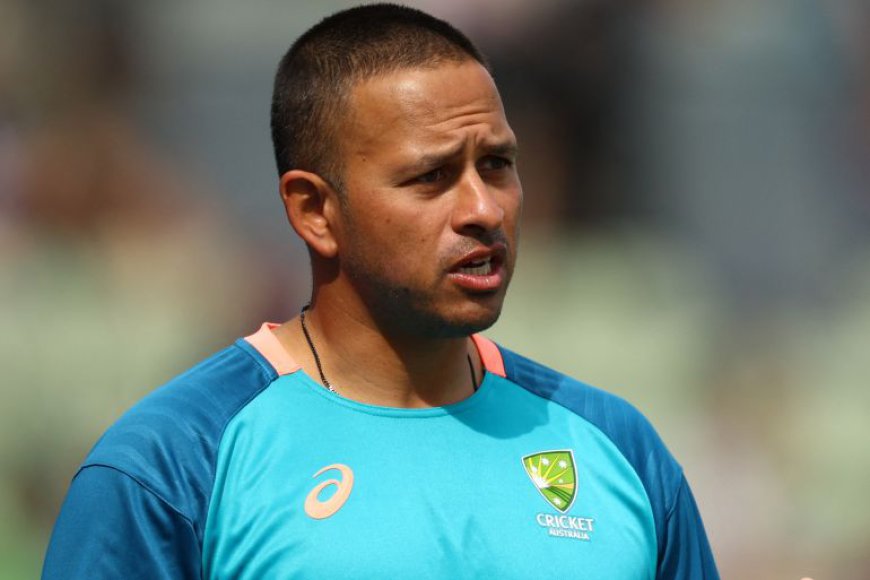Usman Khawaja Challenges ICC's Decision on Palestine Solidarity Shoes: Cricket, Politics, and Freedom Collide
Australian cricketer Usman Khawaja faces off with the ICC over his message of support for Palestine on his cricket boots. The article delves into the controversy, exploring Khawaja's stance, the ICC's ruling, and the broader implications of mixing sports, politics, and humanitarian appeals.

In a bold move, Australian cricketer Usman Khawaja vows to challenge the International Cricket Council's (ICC) ruling preventing him from displaying messages of support for Palestine on his cricket boots. The controversy has sparked a debate on the intersection of sports, politics, and human rights.
Khawaja's Stand Against ICC's Decision
Usman Khawaja, the opening batter for the Australian cricket team, expressed his commitment to "fight" the ICC's decision that prohibits players from featuring "non-compliant" messages on their attire during international matches. Khawaja, seen wearing boots with phrases like "all lives are equal" and "freedom is a human right," insists his message is not political but rather a stand for those without a voice.
Emotional Appeal for Humanitarian Cause
In an emotional video posted on social media, Khawaja clarified that his support for Palestine is rooted in humanitarian concerns. The cricketer, who has two daughters, passionately speaks out against the lack of repercussions for the deaths of thousands of children in Gaza. He challenges the backlash, emphasizing the equality of all lives, regardless of race, religion, or culture.
ICC's Silence and Sporting Community's Response
The ICC has remained silent on the matter, refusing to comment on Khawaja's appeal. However, the sporting community is divided, with some, including Australia's Sport Minister Anika Wells, supporting Khawaja's right to express his views peacefully. Australia captain Pat Cummins acknowledges Khawaja's messages as non-divisive but confirms they won't be displayed during the upcoming Test match.
Precedent for Political Messaging in Sports
Experts weigh in on the potential precedent Khawaja's appeal might set for handling similar issues in the future. The ICC's code of conduct is clear, but Khawaja argues that his messages are humanitarian rather than political. The article draws comparisons with previous instances, such as Moeen Ali's wristbands during the 2014 Gaza war and Muhammad Rizwan's post-match dedication to Gaza.
Backlash and Double Standards
The ICC's decision has faced criticism from cricket fans and experts who question double standards in supporting causes. The article explores the backlash, emphasizing the parallels with the ICC's support for Black Lives Matter and other social causes. Cricket writer Ayaz Memon commends Khawaja's bravery and challenges the perceived inconsistency in the ICC's approach.
Conclusion
As Khawaja awaits the outcome of his appeal, the article concludes by highlighting the broader implications of mixing politics and sports. The cricketing world watches closely as this controversy unfolds, anticipating its impact on the handling of political messaging in international cricket.







